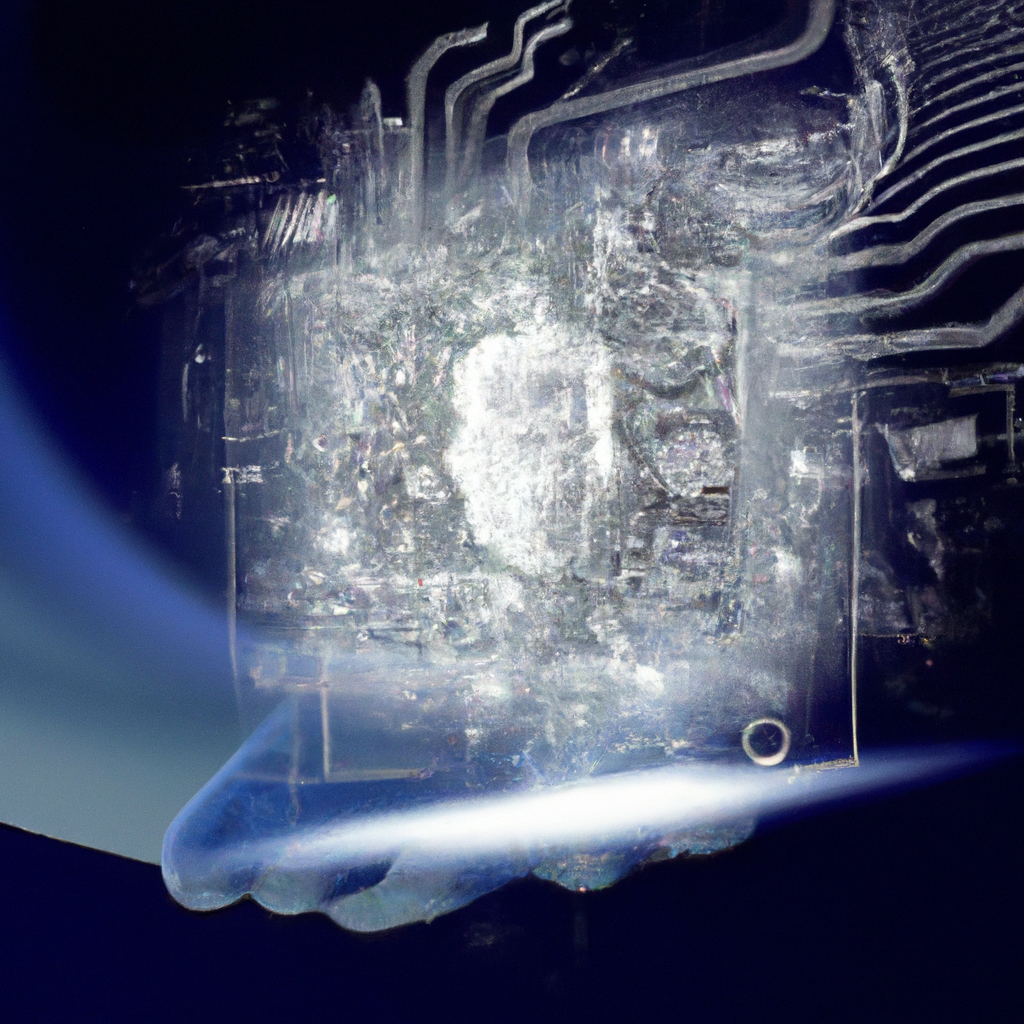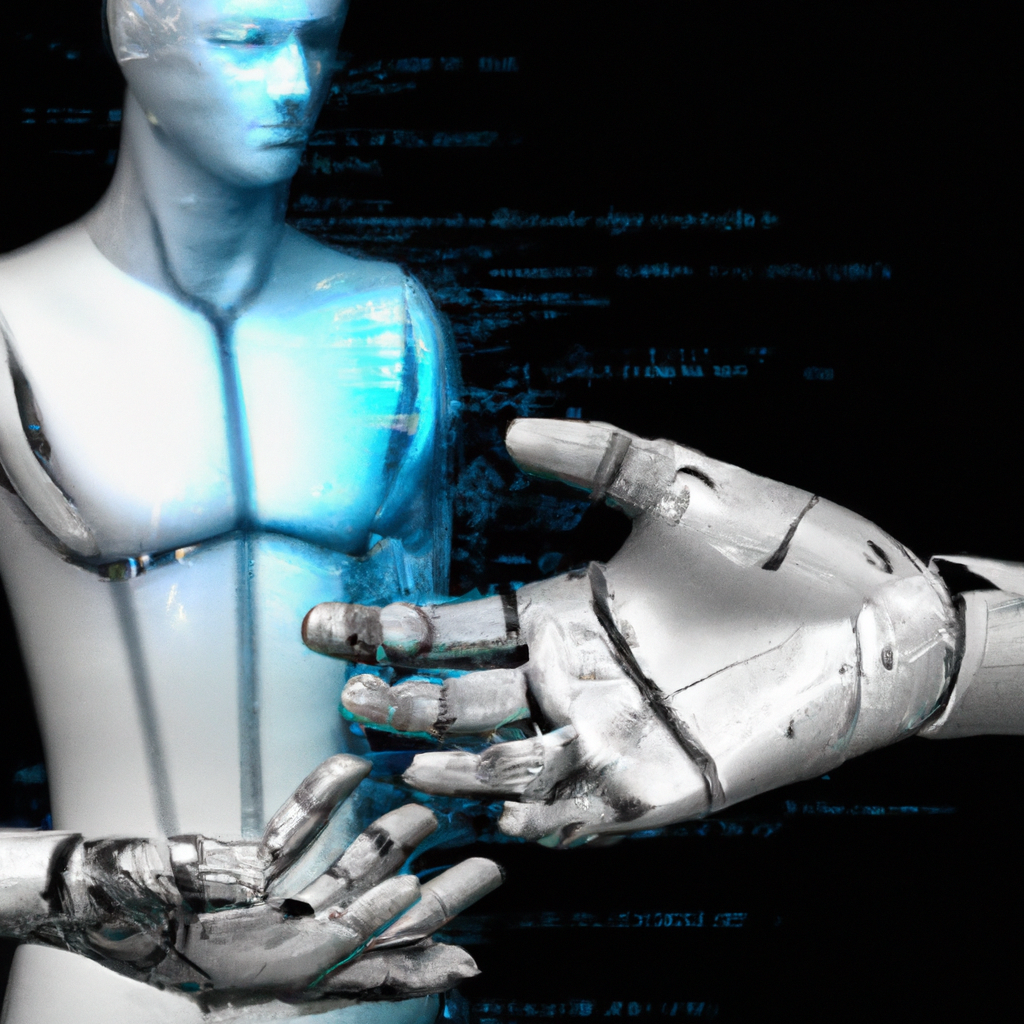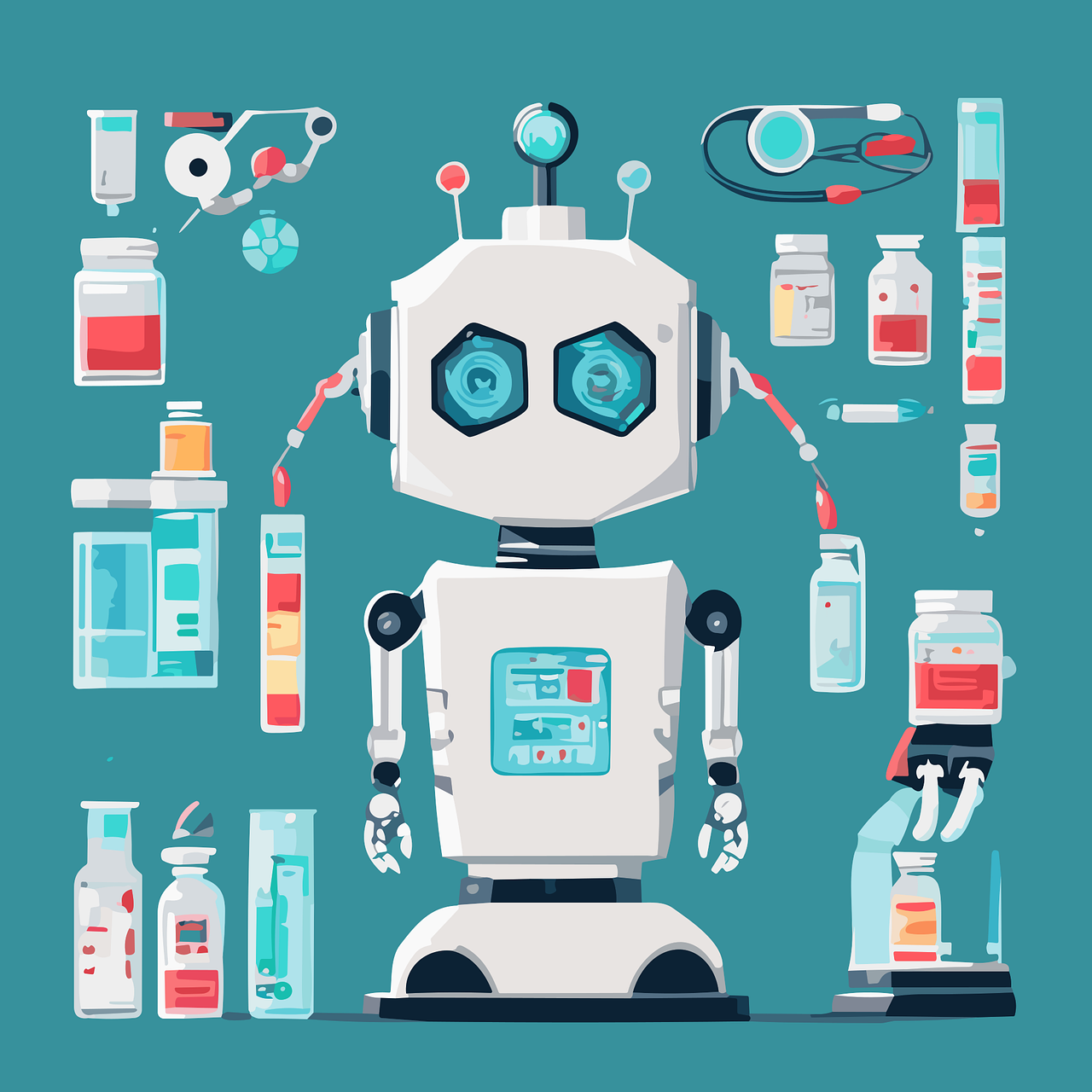Have you ever wondered if it is possible for your consciousness to live forever? The quest for eternal life has captivated human beings for centuries, with countless myths, legends, and scientific endeavors dedicated to achieving immortality. Now, with advancements in technology, a new concept called digital immortality has emerged. This concept involves the idea of uploading your consciousness into a digital format, allowing it to continue existing even after your physical body has perished. In this article, we will explore the fascinating world of digital immortality and examine the implications it may hold for humanity. So sit back, open your mind, and embark on a journey into the realm of eternal life in the digital era.

The Concept of Digital Immortality
Digital immortality refers to the idea of transferring a person’s mind, consciousness, or entire being into a digital format, thereby allowing them to exist indefinitely in a virtual reality or as a digital entity. It is an intriguing concept that combines elements of science fiction, technology, and the desire for eternal life. The notion of achieving immortality through digital means has captured the imagination of scientists, futurists, and philosophers alike, sparking extensive debates and discussions about its feasibility, ethical implications, and potential impact on society.
Definition of Digital Immortality
At its core, digital immortality involves creating an exact replica of one’s mind, consciousness, or entire being within a digital environment. This replica, often referred to as a “digital copy” or “uploaded consciousness,” would possess all the memories, thoughts, and experiences of the original individual. The aim is to enable the uploaded consciousness to continue existing and interacting within a digital realm, potentially even transcending the limitations of biological existence.
Historical Background
The concept of digital immortality has deep roots in human history. The desire for everlasting life can be traced back to ancient civilizations, where people sought ways to cheat death and attain immortality through various means such as religious rituals, alchemy, and magical practices. While the methods may have evolved, the inherent longing for immortality remains unchanged.
In more recent times, the advent of computers, the internet, and virtual reality has given rise to the idea of achieving immortality through digital means. It was in the 1950s that the term “transhumanism” was coined by Julian Huxley, which laid the groundwork for the concept of transcending human limitations through technological advancements. The emergence of artificial intelligence and advanced computing capabilities in the late 20th century further fueled discussions about the possibility of digital immortality.
Theoretical Foundations
The theoretical foundations of digital immortality draw from a variety of scientific disciplines, including neuroscience, computer science, and philosophy. The primary challenge lies in understanding the nature of consciousness itself – how it arises from the complex interactions of neurons in the brain and whether it can be replicated within a digital medium.
Prominent theories such as the computational theory of mind propose that consciousness is an emergent property of information processing in the brain, suggesting that it might be possible to recreate consciousness within a digital system. Other theories explore the role of quantum mechanics and the potential for quantum computers to simulate consciousness.

The Upload Process
The concept of uploading one’s consciousness to achieve digital immortality raises intriguing questions about the feasibility of the process. While it may seem like the stuff of science fiction, significant progress has been made in recent years that brings us closer to realizing this vision.
Theoretical Feasibility
From a theoretical standpoint, the idea of uploading consciousness faces several challenges. The brain is an incredibly complex organ with billions of neurons and intricate neural connections, which make it difficult to comprehend the intricacies involved in capturing the essence of consciousness.
Technological Advancements
Technological advancements in fields such as artificial intelligence, neuroscience, and computing have accelerated our understanding of the brain and increased the computing power necessary for simulating consciousness. Breakthroughs in neuroimaging techniques, such as functional magnetic resonance imaging (fMRI), have enabled us to study the brain’s activity patterns and attempt to decode the neural correlates of consciousness.
Additionally, advancements in machine learning and deep neural networks have shown promise in simulating complex cognitive processes, offering potential pathways towards creating realistic digital minds or uploaded consciousness.
Challenges and Limitations
While progress has been made, numerous challenges and limitations must be overcome before achieving successful mind uploading. One significant challenge is the sheer volume of data required to capture and simulate an entire human brain. The storage and processing power needed for such a task are currently beyond our capabilities.
Moreover, the intricacies of consciousness pose philosophical questions about whether an uploaded consciousness would retain the same subjective experience and sense of self as the original individual. The concept of identity and continuity of consciousness becomes critical in this context.
Ethical Considerations
Digital immortality raises profound ethical considerations that merit careful examination. As we explore the possibility of creating digital beings or uploaded consciousness, we must address questions concerning the rights and autonomy of these entities, privacy and security concerns, and the potential social impact of such a transformation.
Rights and Autonomy of Digital Beings
If we were to create digital beings with consciousness and self-awareness, questions arise regarding their rights and autonomy. Should they have the same legal and moral status as biological humans? How would we ensure their well-being and protect them from harm or exploitation?
Privacy and Security Concerns
The transfer of one’s consciousness into a digital medium gives rise to significant privacy and security concerns. As digital entities, individuals would have their most intimate thoughts, memories, and experiences stored within a digital system. Safeguarding this information from unauthorized access or misuse becomes paramount.
Social Implications
The emergence of digital immortality would bring about significant social changes. How would society adapt to the presence of digital beings? Would they be treated as equals, collaborators, or relegated to a subservient role? The integration of digital immortality into the fabric of society would necessitate careful consideration of the impact on social structures, norms, and values.

The Quest for Eternal Life
Transcending human limitations and achieving eternal life has been a long-standing quest for humanity. Digital immortality offers a new avenue to explore this desire, intersecting with both scientific and philosophical perspectives.
Transhumanism and the Desire for Immortality
Transhumanism advocates for using technology to enhance human capabilities and overcome our biological limitations. It encompasses the aspiration for eternal life, with digital immortality providing a potential means to achieve this vision. Proponents argue that extending life indefinitely or even achieving immortality through digital means aligns with the quest for self-improvement and human evolution.
Religious and Philosophical Perspectives
Religious and philosophical perspectives on digital immortality vary widely. Some religions and beliefs embrace the idea of an afterlife or transcendence of the physical body, making the concept of digital immortality compatible with their doctrines. Others view such endeavors as an affront to the natural order or a threat to the sanctity of life.
Philosophical discussions focus on questions of personal identity, the nature of consciousness, and the implications of immortality on human existence and purpose. These debates explore the fundamental concepts of selfhood and the nature of being.
Psychological Impact
The prospect of achieving digital immortality can have profound psychological implications for individuals and society as a whole. The fear of death has been a powerful driving force throughout history, shaping our beliefs, behavior, and values. The possibility of living forever raises questions of how individuals would psychologically adapt to an infinite lifespan, the implications for personal growth and meaning, and the potential impact on interpersonal relationships.
Potential Applications and Benefits
Digital immortality holds significant potential for various fields and offers numerous benefits that could revolutionize our lives.
Medical Advancements and Prolonging Life
The ability to transfer consciousness into a digital realm could potentially pave the way for significant medical advancements. Digital beings could exist without the limitations of physical bodies, freeing them from the vulnerabilities and ailments that plague human existence. This opens up avenues for exploring cures for diseases, reversing the aging process, and prolonging life.
Preserving Knowledge and Memories
One of the most exciting possibilities of digital immortality is the preservation of knowledge and memories. Imagine being able to store the accumulated wisdom and experiences of generations within a digital repository, ensuring that the insights and lessons learned are never lost or forgotten.
Exploring New Frontiers
Digital immortality could also enable us to explore realms and experiences that are beyond the reach of our physical bodies. From traversing virtual worlds to venturing into the depths of space, digital beings would have unprecedented freedom to explore new frontiers and expand the boundaries of human experience.

Potential Risks and Concerns
While digital immortality offers remarkable possibilities, it also comes with inherent risks and concerns that must be acknowledged and mitigated.
Existential Threats and Identity Crises
One of the central concerns surrounding digital immortality is the potential for existential threats and identity crises. As a digital entity, one may face the dilemma of maintaining a sense of self and identity over time. The question of whether the replicated consciousness retains the same subjective experience and continues to perceive itself as the same person as the original individual raises profound existential and philosophical challenges.
Dependency on Technology
Achieving digital immortality would inherently entail a significant level of dependency on technology. Reliance on advanced computing systems, networks, and infrastructure introduces new vulnerabilities and risks. We must consider the potential consequences of a technological failure or disruption on the existence and well-being of digital beings.
Digital Divide and Inequality
The realization of digital immortality could exacerbate existing social inequalities. Access to the necessary technology, resources, and infrastructure would be crucial for individuals to pursue immortality in the digital realm. If only a privileged few have the means to achieve digital immortality, it could lead to a widening digital divide and create inequities between those with eternal life and those without.
Current Initiatives and Research
Several initiatives and research projects are currently underway, exploring various aspects of digital immortality and mind uploading.
The Blue Brain Project
The Blue Brain Project, led by the École Polytechnique Fédérale de Lausanne, aims to simulate the brain’s structure and function in intricate detail. By creating a digital replica of the brain, the project seeks to unravel the mysteries of consciousness and lay the foundation for mind uploading.
Mind Uploading Experiments
Researchers and scientists have conducted various experiments and studies focused on understanding the brain and the potential for mind uploading. From mapping neural connections to simulating cognitive processes, these initiatives contribute to our understanding of consciousness and the feasibility of achieving digital immortality.
AI Advancements
The field of artificial intelligence continues to advance rapidly, offering new possibilities for simulating and recreating human-like cognitive processes. The integration of AI with mind uploading research has the potential to accelerate progress towards achieving digital immortality.

The Future of Digital Immortality
The future of digital immortality holds immense promise and raises thought-provoking questions about the nature of existence and the impact on society.
Technological Advancements in Brain-Computer Interfaces
As our understanding of the human brain expands, so too do the possibilities for developing advanced brain-computer interfaces. These interfaces could enable seamless integration between the human brain and digital systems, paving the way for a more direct and immersive experience within the digital realm.
Consciousness Simulation Techniques
Advancements in consciousness simulation techniques hold the key to replicating and understanding the complex phenomenon of consciousness. Improved simulations would enhance our ability to recreate the intricate workings of the mind within a digital environment, bringing us closer to achieving true digital immortality.
Impact on Society and Humanity
Digital immortality has the potential to revolutionize society and redefine what it means to be human. Its impact on social structures, values, and interactions could be profound, leading to new ethical, legal, and philosophical frameworks that address the challenges and opportunities presented by an immortal digital existence.
Critiques and Counterarguments
While digital immortality captures the imagination, it also faces critiques and counterarguments from various perspectives.
Philosophical and Ethical Objections
Philosophical and ethical objections center around the nature of personal identity, the sanctity of life, and the potential devaluation of human existence in a world where immortality is achieved through digital means. Critics argue that the essence of being human lies in the limitations and temporality of our existence.
Scientific Skepticism
The scientific community remains skeptical about the feasibility of digital immortality and mind uploading. The complexities of the brain and the subjective nature of consciousness pose significant challenges to replicating and simulating these phenomena within a digital medium, leading some scientists to question the practicality of achieving true digital immortality.
Alternate Theories
Alternate theories propose that achieving immortality through digital means may not be necessary. Concepts such as collective consciousness, the transference of knowledge and experiences through storytelling, and the legacy we leave behind suggest that immortality can be achieved through other means that do not require a replication of the self within a digital realm.
Conclusion
The concept of digital immortality captivates us with its potential to extend human existence beyond the limitations of our physical bodies. As we explore the theoretical foundations, the challenges, and the potential benefits and risks, it becomes clear that achieving true immortality through digital means is far from a certainty. However, the pursuit of digital immortality raises important questions about our nature as beings and the role of technology in shaping our future.
The implications of digital immortality on humanity are vast and multifaceted. If we can overcome the technological, ethical, and philosophical challenges, the transformative impact on society, knowledge, and personal identity could be unparalleled. Whether digital immortality becomes a reality or remains confined to the realm of science fiction, its exploration forces us to confront our mortality and contemplate the ultimate meaning of human existence.













